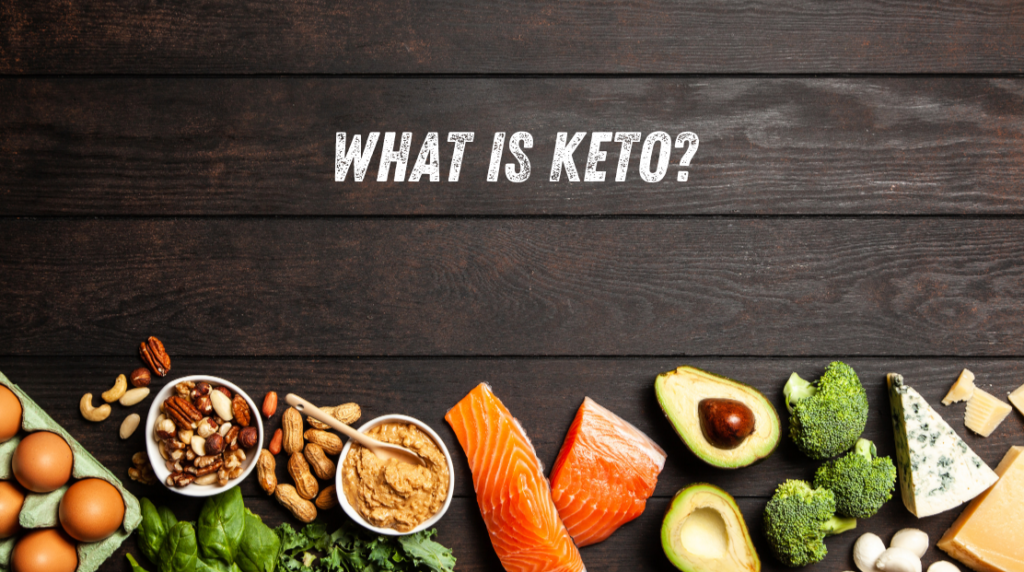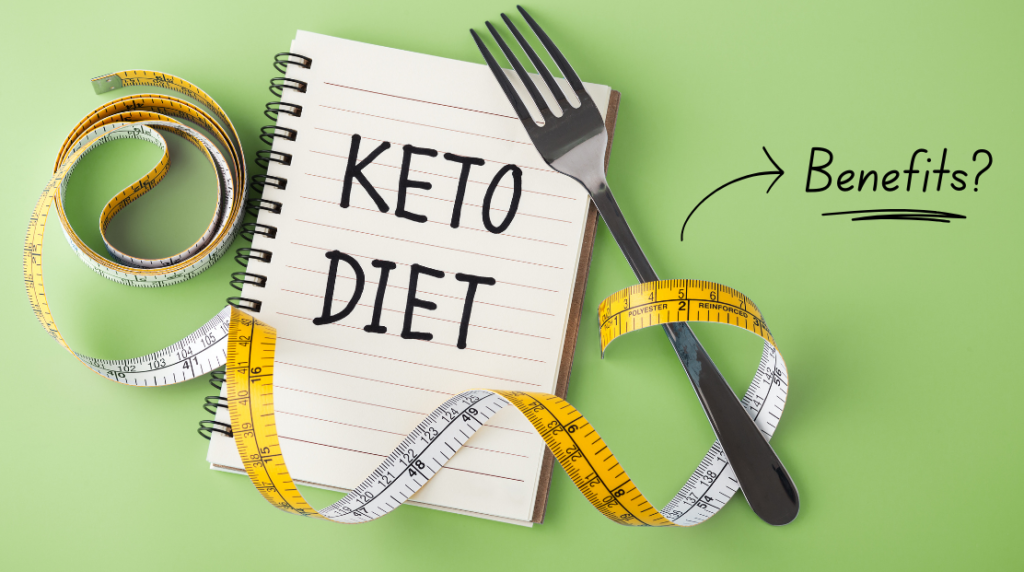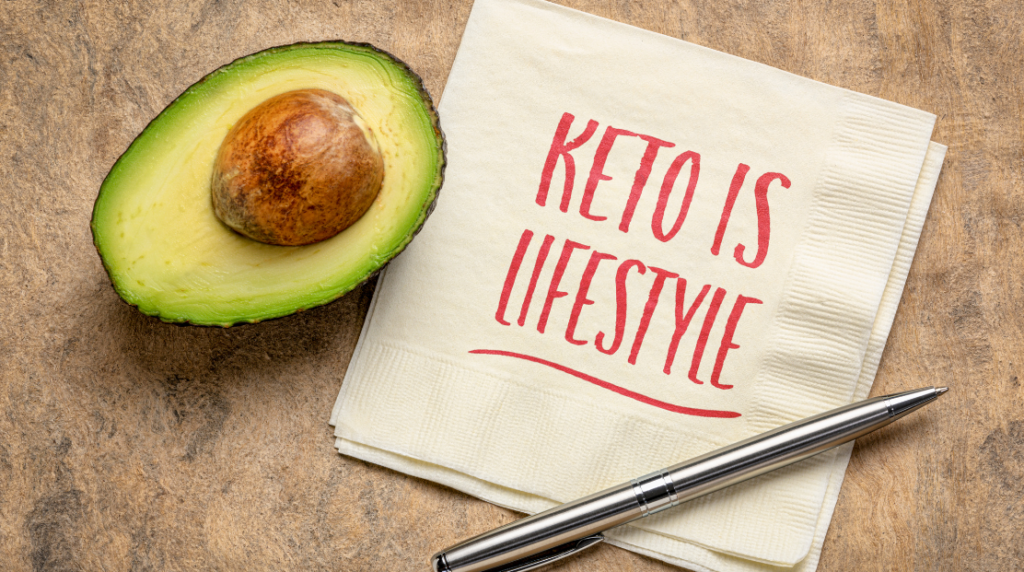What is Keto Diet? Here’s a Short and Crisp Beginner’s Guide-

-by Aman Kumar Rastogi
What is Keto Diet?
If you are into fitness and looking to lose weight, you probably might have already heard of a keto diet. A keto or a ketogenic diet is a diet that involves consuming a fat-rich and low-carbohydrate diet. This induces a metabolic state called ketosis in which the body efficiently starts to burn fat for energy. Keto diet has been proven to help in weight loss and other health problems. Keto may also help people with diabetes and improve cardiovascular health.
The Keto Diet has several variations depending on an individual’s health goals. Some of them are:
Standard Ketogenic Diet (SKD):
It is the most common and widely recommended type of ketogenic diet. It involves a high intake of healthy fats (70-75%) of total daily calories), a moderate amount of protein (30-25%), and a very low amount of carbs (5-10%).
Targeted Ketogenic Diet (TKD):
In TKD individuals are allowed to consume a higher amount of carbohydrates around their workouts. The carbs provide them with the extra energy required for exercise while maintaining ketosis.
Cyclical Ketogenic Diet (CKD):
CKS involves cycling periods of higher car intake with periods of strict keto. A common approach to CKD is 5 days of strict keto followed by two days of higher carb consumption.
Hight-Protein Ketogenic Diet:
In this variation, an individual increases their protein intake while maintaining the low-carb and high-fat ratio. It is preferred by individuals looking for muscle growth while maintaining ketosis. Individuals involved in weight training usually prefer this type of keto diet.
Vegetarian/Vegan Ketogenic Diet:
It is a keto diet which does not include meat and animal products. The goal remains the same i.e. to reduce carb intake and increase healthy fat intake. Vegetarians and Vegans follow this type of keto diet.
Dirty Keto:
In this type of keto, individuals solely focus on the macronutrient ratio without giving much importance to the quality of the food source.
How Keto Diet Works

A ketogenic diet works by bringing the body into a state of ketosis. Ketosis is a metabolic state during which the body shifts from using glucose as its primary source of energy to relying on ketones, which are produced from the breakdown of fats. It occurs when carbohydrate intake is reduced forcing the body to shift to an alternate source of energy than glucose.
Ketosis helps lose weight faster as it increases the fat burning in the body as the body shifts to relying on fats for energy production from glucose. The keto diet also causes appetite suppression because the high-fat and moderate-protein meals induce a feeling of fullness and satiety, reducing overall calorie intake.
Benefits of Keto

Keto diet has many health benefits when done with proper medical consultation. Some of them are:
Weight Loss
This is probably the most common reason why people turn to the keto diet. Keto diet encourages the body to turn to fats for energy, leading to weight loss quickly.
Reduced Blood Sugar and Insulin
Keto diet can be helpful for people with diabetes and insulin resistance. It may be helpful for people with type 2 diabetes. Keto also helps the body respond more effectively to insulin by enhancing insulin sensitivity.
Reduces Triglyceride Levels
The keto diet leads to reduced triglyceride levels which are a risk factor for heart health. Therefore, a keto diet may also be beneficial for cardiovascular health.
Therapeutic Uses
The Keto diet has been used as a therapeutic intervention for certain medical conditions including epilepsy. It has been used for decades to treat children with epilepsy. It can also be beneficial for people with Alzheimer’s and Parkinson’s disease as well.
Some Common Keto Diet Myths

Keto is a high-protein diet
Keto diet may not necessarily be high in protein intake. Keto diet must be high in fat and moderate in protein content. Too much protein will result in some of the protein being converted into glucose which defats the whole purpose of a keto diet.
You always feel low on energy while on a keto diet
After the body adjusts to ketosis, the ketogenic diet can help individuals with their energy and concentration levels. The ketones are a good and steady energy source for the brain, thereby enhancing brain function.
Ketosis is dangerous
People often confuse ketosis with ketoacidosis. Ketosis is a perfectly normal and safe metabolic state that the body enters when on a keto diet.
Keto is the same as a low-carb diet
Low-carb and keto are not the same thing. Less than 20 grams of carbohydrates per day is what’s needed for a ketogenic diet, maybe as little as 20–50 grams at most, whereas low-carb would be 50–150 grams per day. Furthermore, a low-carb diet can include a lot of protein, whereas in keto it is essential to consume protein in moderation.
It’s important to remember that, along with embracing the keto lifestyle, maintaining a balanced and nutritious diet is key for overall health. Good nutrition provides the body with the necessary vitamins and minerals for optimal functioning. At Nutrimuscle, we offer a variety of top-notch supplements, including whey protein, mass gainers, and creatine. These supplements are designed to support different nutritional needs, ensuring individuals can follow a well-rounded and balanced diet—a crucial aspect of a successful healthy lifestyle.
